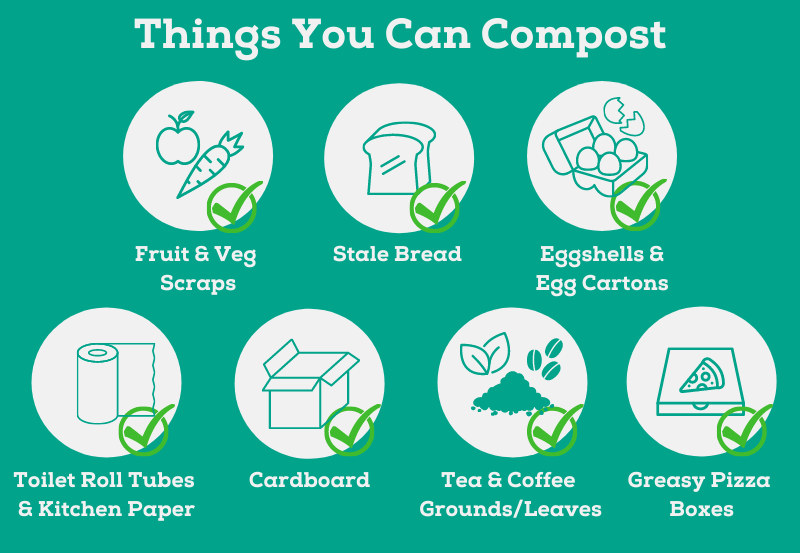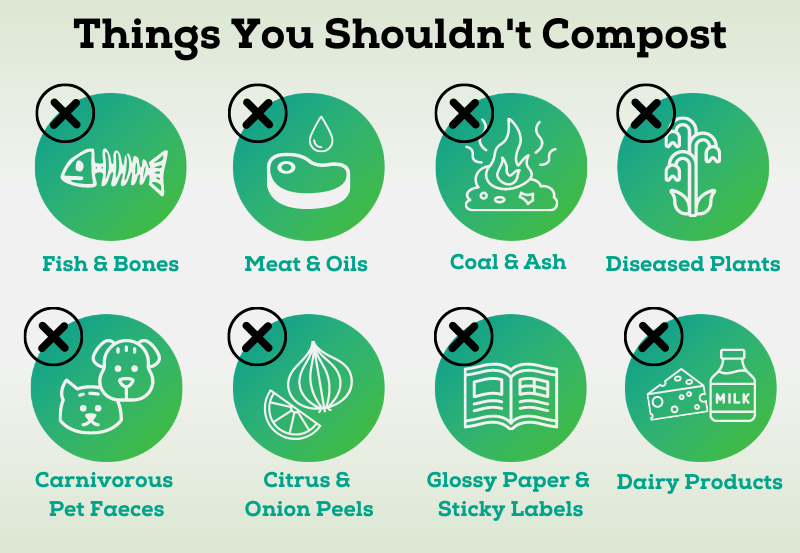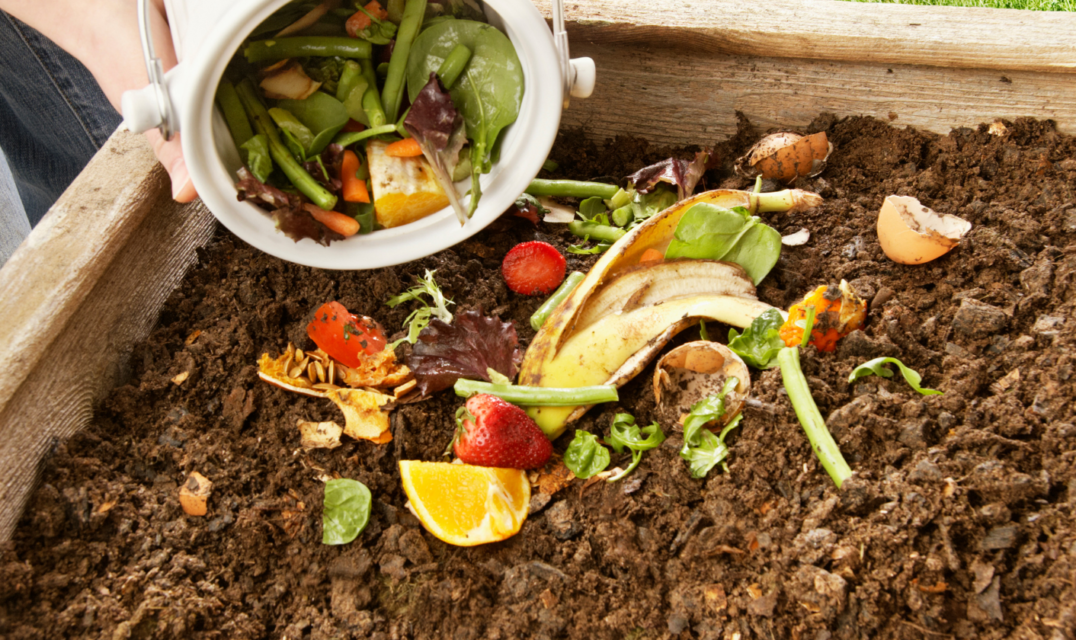Composting is great for many reasons, and it’s easier than you might think. Don’t believe us? Check out all the reasons why it’s good for the environment and your pocket below. Plus, with Panda’s simple how-to guide you’ll be wondering why you hadn’t started sooner!
The Benefits:
- It’s a great way to save you money! – Reduce the amount you put in the general waste bin and lessen the weight and cost of your bin lifts.
- It’s another way to recycle your waste – Further improve your home recycling initiative and reduce your waste. Much of your kitchen and garden waste can be recycled through composting.
- It combats climate change – Composting means less waste going to landfill. This helps cut down on greenhouse gases in the atmosphere.
- It’s beneficial to the environment! – Got a garden? Composting is a great way to make rich soil packed with nutrients to breathe life into your plants and the surrounding environment. It suppresses plant diseases and establishes vegetation. It also reduces the need for chemical fertilisers and peat, as you won’t be creating demand.
When Composting Outside:
- Dedicate an area – Either an open area or pile about 3 square ft or use a bin with a lid. If you decide on open composting, use fencing or wire to protect animals from getting at it. You should also put down twigs or straw first to help with aeration.
- Mix green and brown materials – A ratio of 1/3 green and 2/3 brown materials works best to maintain a good balance of carbon & nitrogen. You can keep food scraps covered with brown materials.
- Green materials include food scraps and garden waste.
- Brown materials include dry leaves, sticks, dirt & paper/cardboard.
- Maintain the moisture – During periods of no rain, add water or wet scraps to your compost so it stays damp. This ensures the best environment for microorganisms to thrive. You don’t want it to be too wet. It should have the consistency of a sponge.
- Turn your compost – To ensure there’s enough oxygen and to stop rotting and smelling, turn your pile every 2-4 weeks. Bins would need to be turned more frequently (every 2-3 days) for aeration and you can invest in a tumbler to make it more efficient.
- Feed your garden – When your compost is ready to use, it’ll look and feel like rich, dark soil, and smell like earth. Now you can use it to fertilise your plants!
When Composting Inside:
Got an apartment or no garden? No problem, you can still get set up in your kitchen!
- Get a bin with a tight lid – Opt for a stainless steel bin over plastic to be more sustainable!
- Line your bin with biodegradable bags – Plastic bags won’t work as they’ll interfere with the process.
- Full bags can be stored in the freezer! – This helps when your bin is full, and you need more time to drop off your compost.
- No garden? No problem – Panda offers compost collection services. For rural areas where this may not be possible, you can drop them off at your local civic amenity site. Another option is to find somewhere to donate your compost such as a local college or farmer’s market.
What You Can And Can’t Compost:
Most of what you can compost includes kitchen and garden waste.

Some things can be unsafe to compost, due to many reasons. Though they might be biodegradable, some materials can cause odours, attract diseases, and invite pests such as insects, flies, and rodents. Check out the things you’d be better off disposing of in the general waste bin.
- Pet Faeces from carnivorous animals can contain parasites, bacteria, E. coli, salmonella, ringworm, and tapeworm.
- Citrus peels & onions can be acidic and kill off microorganisms & worms living in a compost bin.
- Fish, meat, bones & grease can smell and attract pests.
- Dairy products are also inviting to pests and rodents.
- Glossy paper such as magazines and wrapping paper use chemicals and toxins. Plus, they don’t decompose naturally. Don’t forget to check for those sticky labels on fruit and veg skins!
- Coal and ash made from non-wood sources contain sulphur & iron, which kills plants.
- Though tea leaves are okay to compost, don’t forget to remove the bag, unless the packaging states they are fully compostable.

One million tonnes of food is wasted in Ireland every year. Not by Panda. We use anaerobic digestion to turn food waste into a source of renewable energy. Processing 45,000 tonnes of material every year, our in-vessel compost facility is Ireland’s largest. The result? 100% sustainable compost that’s perfect for agriculture. Find out more.


